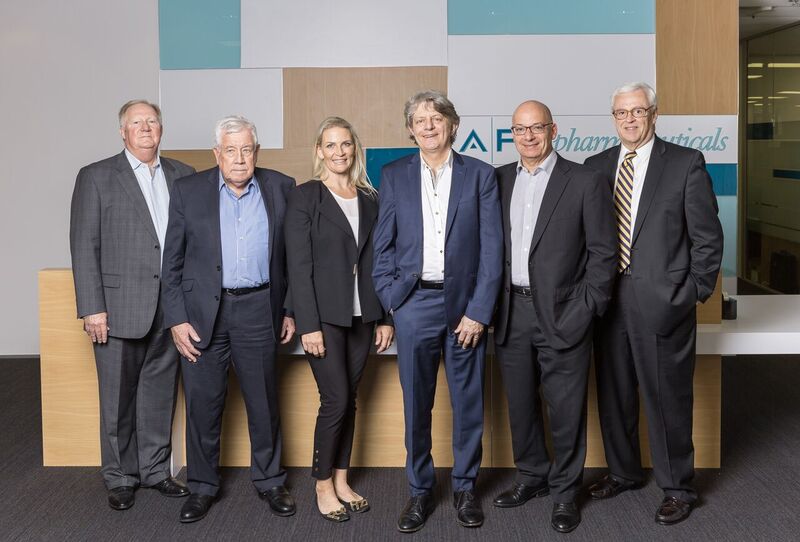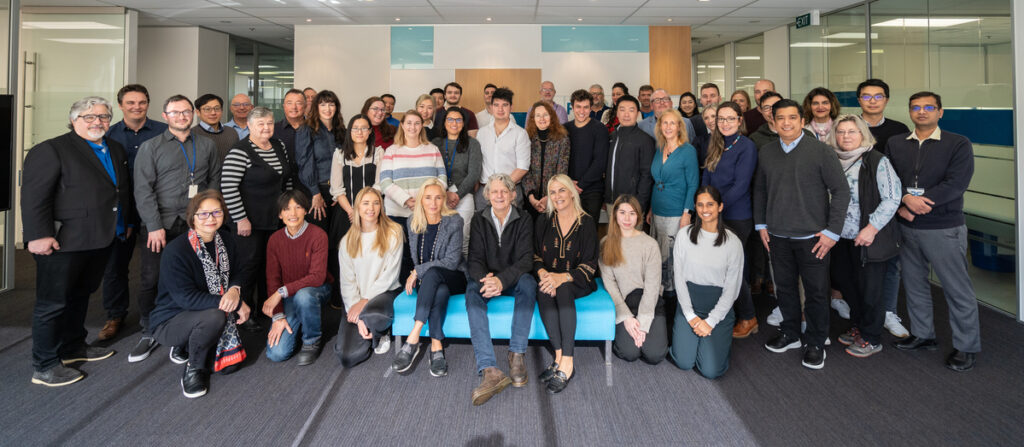Twenty years ago this week, husband and wife Dr Hartley Atkinson and Marree Atkinson, started AFT Pharmaceuticals (AFT) in a room off their home garage.
Last year the NZX and ASX listed company earned revenue of NZ$70M and has a market capitalisation of around NZ$250M.
Reflecting on 20 years in business, Hartley Atkinson says that his company’s success shows that kiwi companies can become global players in their respective industry while being headquartered in New Zealand.
“When we started in 1997 it was just Marree and myself working in a small bedroom off our garage. Twenty years later, we have 92 staff, offices in Auckland, Sydney and Kuala Lumpur, our painkiller Maxigesic is licensed in 124 countries, and a strong product pipeline. We’re running all of this out of Takapuna and, frankly, why not because this is a beautiful part of the world to live in.”
Dr Atkinson says that the key to AFT’s success has been creating the intellectual property behind many of their products through patents and trademarks.
“We like to think that we’re living the vision of the late Sir Paul Callaghan. We exploit niche opportunities that big pharma companies can miss, we invest heavily in our R&D, and while we manufacture and sell globally, we’ve managed to keep the intellectual property here in New Zealand.”
Dr Atkinson says that pharmaceuticals is an incredibly competitive business. “The big international pharmaceutical companies are tough competitors because of their size and reach. I can honestly say that in the last 20 years they’ve tried to crush us a few times. But we’ve survived and managed to grow our sales literally every single year.”
“Partly this has been about maximising the advantages that we have. So, for example, with Maxigesic, the primary dose form has been tablets. But we can see that there are markets for different forms of Maxigesic, including an intravenous dose form for use in hospitals, and a version that can be taken without water for countries where the availability of drinking water can be issue.”
“It’s also been about trying to make every dollar of expenditure go as far as possible. For example, CRG is one our institutional investors. They are a specialist US health-care investor with something in the order of US$3B worth of assets. At our annual shareholder meeting earlier this month, Nathan Hukill, who represents CRG on our Board, pointed out how cost-effective AFT’s clinical trial work is compared to many larger international pharma companies.”
“In reality we’ve got no choice but to run a lean operation and we save significantly by doing the leg work ourselves rather than delegating this to a CRO (Clinical Research Organisation) which is common practice in the pharma industry. We basically jump on a plane and visit clinical experts ourselves and work with them to run the studies – whether it’s in New Zealand or the US.”
“Sir Paul Callaghan also said New Zealand should do weird’ better than anyone else. We’ll we’ve got this thing called the NasoSURF for delivering drugs through the nose. We’re not talking about an iPhone or a driverless electric car here basically this is something people hold up to their nose and activate by breathing out. But our studies show this product is superior to what’s on the market because of its high nasal penetration and because its portable. Yes, it’s a little weird, but we think it has the potential to be a game changer in this field. It’s already been registered with the FDA in the United States as a Class 1 Medical Device with a key FDA meeting due in September to organise the clinical development pathway for the first key development.”
Despite the international success, Dr Atkinson is quick to acknowledge the role local support has played for AFT.
“In many ways, AFT only exists today because pharmacists supported our products when Marree and I were on the road selling them back when we started the business. That support has remained in place. So, for instance, AFT is the largest supplier of allergy-related OTC pharmaceuticals in the New Zealand market, beating out a number of large international pharmaceutical brands. Of course efficacy and price are important, but anecdotally we know there is a lot of support for us because we’re a kiwi company and we develop our own products here. That means a lot to us and we’re really grateful for the support.”





